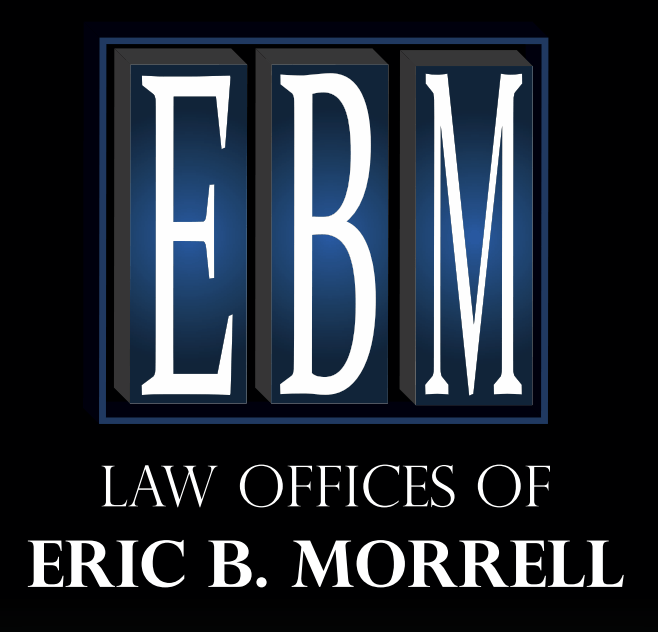Title IX Made Clear: EBM Law Knows Your Rights and is Familiar with all Protocols
Title IX Made Clear : EBM Law Knows your Rights and is Familiar with all Protocols
Have you ever been notified or involved in a formal Title IX complaint? Without prior knowledge of the Title IX Formal Complaint process, you may not adhere to the adequate procedural measures, leading to unfavorable outcomes or compliance penalties. As of August 14, 2020, federal regulations have requirements that institutions must follow when addressing Title IX matters. Proper adherence to these guidelines promises fairness, transparency, and impartiality throughout the formal process.
Notice of Allegations
One of the first steps in the Title IX Formal Complaint process is the issuance of a
Notice of Allegations to both the Complainant and Respondent. This document is crucial for subsequent proceedings and ensuring that both parties understand their rights and responsibilities.
The Notice of Allegations must include:
The right to a self appointed advisor: Both parties have the right to an advisor of their choice who will be present throughout the investigation and any subsequent hearings. Parties are also allowed to be accompanied by a “Support Partner”, different from an advisor. An example would be a family member.
Access to evidence: Both parties must be informed of their right to review all evidence gathered during the investigation, promising transparency.
False evidence: A clear statement against knowingly submitting false information or evidence is required.
This notice must be provided early enough to give both parties at least
10 days time to prepare for interviews and hearings. If new allegations arise during the process, an updated notice must be sent to both parties without delay.
Our offices understand that allegations in a Title IX formal complaint related to conduct that has occurred outside of the education program or activity must be dismissed.
Confidentiality
Confidentiality is critical for upholding the integrity of the Title IX process. The institution must withhold private information related to the Complainant, Respondent, and if needed, witnesses. The Family Educational Rights and Privacy Act (FERPA) allows for the disclosure of information under specific circumstances.
Institutions must make both inculpatory (indicating responsibility) and exculpatory (indicating non-responsibility) evidence available to both parties. Both sides must be given at least 10 days to review this evidence, which is required to be accessible during hearings and proceedings.
Serving Impartially
Investigators must approach all cases without bias, promising a fair analysis of relevant evidence.Measures to adhere to impartiality include:
Providing thorough training for all interviewers involved in Title IX cases.
Maintaining an appropriate line of communication between the Complainant, Respondent, and their advisors.
Avoiding conflicts of interest to protect the formal process.
Relevant Evidence and Interviews
The Title IX investigation focuses on gathering and analyzing evidence relevant to the allegations. Evidence, such as a complainant’s prior sexual history, is excluded unless it proves another individual is responsible for the alleged conduct..
The interview process plays a critical role in gathering evidence. All interviewees must be selected based on their ability to provide relevant information. Interviews are conducted by trained individuals, and clear rules are established to maintain order. Investigators are responsible for evaluating the credibility of all parties and witnesses without bias.
Documentation and Retention
Thorough documentation is essential for maintaining consistency and transparency. Institutions are required to:
Retain all investigative records, including transcripts, recorded interviews, and audio files, for at least seven years.
Ensure that documentation aligns with legal requirements and the institute's policies.
Title IX coordinators and legal counsel verify the accuracy of the records.
Informal Resolution
In certain cases, institutions may offer an informal resolution process.
Key features of informal resolution:
Both parties must provide written consent to participate.
A trained mediator facilitates discussions to reach a resolution.
Informal resolution is not permitted in cases involving employee-student conduct.
A Formal Complaint must be filed before an Informal Resolution can be offered to the respondent/student.
Hearings
Hearings are a critical component of the Formal Title IX process. During these in-person proceedings:
Cross-examinations are conducted by the advisors of each party.
Our offices are aware that If either involved party refuses to submit to a cross-examination, no portion of their statements can be considered by the adjudicator.
Hearing officers determine the relevance of questions and evidence.
The institution must record the hearing for future reference.
Final Decision and Appeal
Following the investigation and hearing, the institution issues a written determination that includes:
Findings of fact and determinations of responsibility.
A rationale for the decision.
Information on the right to appeal.
Institutions can use one of two standards of evidence: preponderance of the evidence (more likely than not) or clear and convincing evidence (highly probable).
If either the complainant or defendant is dissatisfied with the final outcome, they have the right to appeal on the grounds of unsupported conclusions, procedural errors and new evidence. Appeals must be submitted within the specified timeframe of 10 days.
Here at the Law Offices of Eric B. Morrell we acknowledge the difficulty navigating Title IX proceedings and maintaining our clients right to privacy. Our offices are highly experienced in managing Title IX matters, staying within FERPA guidelines and satisfying Title IX procedural requirements. Eric B. Morrell dedicates his time to protecting the rights of our clients while reviewing and explaining what they should be aware of in their discovery. With superior preparation our offices commit to helping our clients receive a positive and just outcome. If you have any concerns or need assistance regarding a Title IX matter, please contact our offices to protect your rights.
EBM Law’s Commitment
The
Law Offices of Eric B. Morrell, located at
142 Livingston Ave, New Brunswick NJ 08901, is committed to helping our clients fight for the appropriate assessment. Eric B. Morrell has 25 years of experience in defending clients with criminal charges. Some charges that he routinely deals with are:
Criminal Defense
DUI/DWI
Guns & Weapons Crimes
Pre-Trial Detention Hearings
Expungements for Prior Convictions








